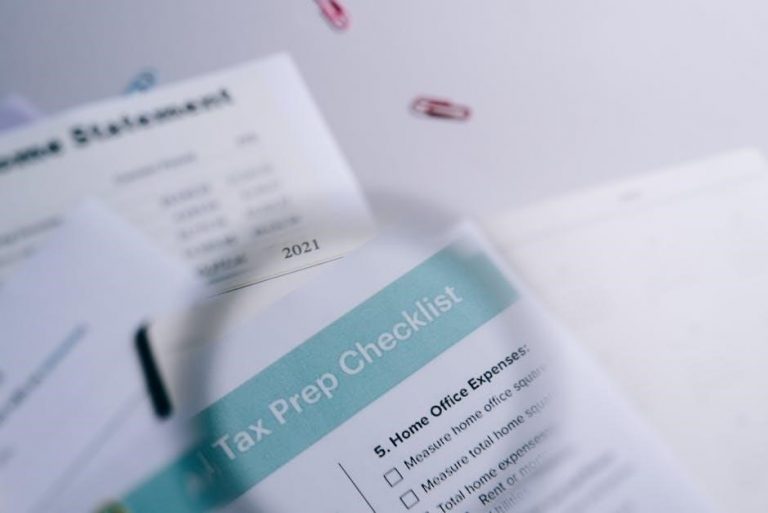The NJ Estate Tax Return is required for estates of deceased New Jersey residents‚ ensuring proper tax assessment on transferable assets. Form NJ-706 is central to this process‚ detailing estate values‚ deductions‚ and exemptions. Timely filing is crucial to avoid penalties‚ with deadlines typically within nine months of death. This return is separate from the inheritance tax‚ focusing on the estate’s tax obligations rather than beneficiary taxes. Proper completion ensures compliance with state tax laws‚ facilitating smooth asset distribution. Consulting tax professionals is advisable for complex cases to navigate requirements effectively and avoid common pitfalls.
1.1 Overview of NJ Estate Tax
The New Jersey Estate Tax applies to the transfer of a deceased resident’s assets‚ requiring the filing of Form NJ-706. It is distinct from the inheritance tax‚ focusing on the estate’s value rather than beneficiary taxes. The tax is calculated based on the estate’s taxable value‚ considering exemptions and deductions. The return must be filed within nine months of the decedent’s death‚ ensuring compliance with state tax laws. Proper preparation is essential to accurately assess liabilities and avoid penalties‚ making it crucial to understand the specific requirements and exemptions applicable to the estate.
1.2 Importance of Filing Estate Tax Returns
Filing the NJ Estate Tax Return is essential to ensure compliance with state tax laws and avoid penalties. It determines the taxable value of the estate‚ applying exemptions and deductions. Proper filing ensures accurate assessment of liabilities‚ preventing legal issues. Missing deadlines can result in penalties and interest. Even if no tax is owed‚ filing is required for estates exceeding the exemption threshold. Timely submission facilitates smooth asset distribution and maintains legal integrity‚ making it a critical step in estate administration.
Filing Requirements for NJ Estate Tax Return
The fiduciary of every resident estate must file Form NJ-706. The return is due within nine months of the decedent’s death. Late filing may incur penalties.
2.1 Who Must File the NJ Estate Tax Return?
The fiduciary or executor of a deceased New Jersey resident’s estate must file the NJ Estate Tax Return if the estate exceeds the exemption threshold. This includes executors‚ administrators‚ or trustees responsible for managing the decedent’s assets. The obligation applies to both resident and non-resident decedents with significant New Jersey assets. Filing ensures compliance with state tax laws‚ covering all transferable assets‚ and is mandatory regardless of whether federal estate taxes are owed. Timely submission is essential to avoid penalties and interest.
2.2 Residency Status and Filing Obligations
Residency status plays a critical role in determining filing obligations for the NJ Estate Tax Return. For resident decedents‚ the estate must file if the taxable estate exceeds the exemption threshold. Non-resident decedents with significant New Jersey assets may also be required to file. The fiduciary must ensure compliance‚ regardless of the decedent’s residency‚ if New Jersey assets are involved. Proper documentation and understanding of residency rules are essential to meet obligations accurately and avoid penalties. The executor or administrator bears responsibility for ensuring timely and correct filing.
2.3 Deadlines for Filing the NJ Estate Tax Return
The NJ Estate Tax Return must be filed within nine months of the decedent’s death. A 5-month extension is available upon request‚ but interest on unpaid taxes accrues from the original due date. Late filing may result in penalties and interest. Executors or administrators should ensure timely submission to avoid additional costs. The deadline applies to both resident and non-resident decedents with New Jersey assets. Proper planning and adherence to these timelines are essential for compliance and minimizing financial repercussions.
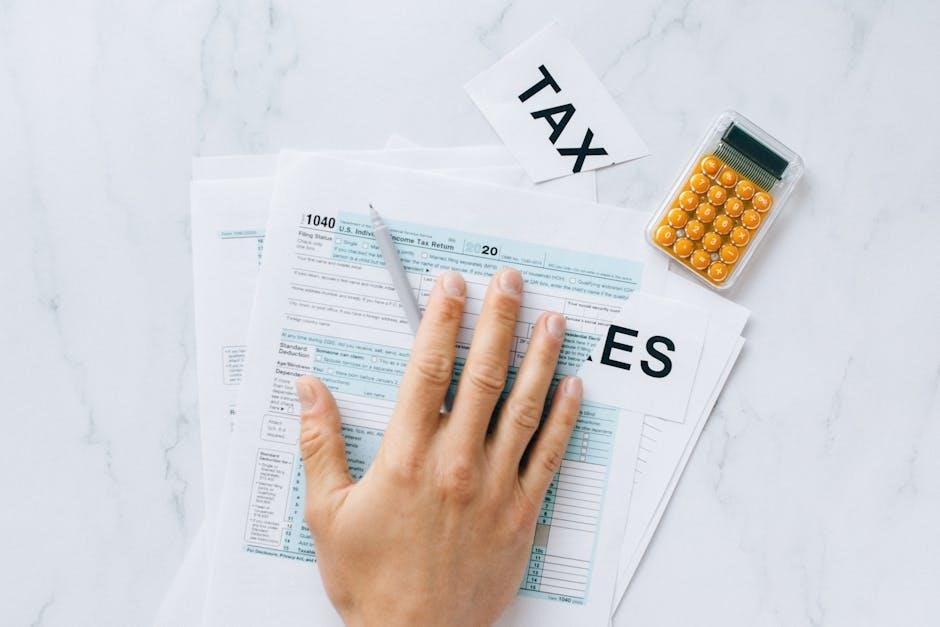
Forms Needed for NJ Estate Tax Return
Key forms include Form NJ-706 for the estate tax return‚ Form IT-Estate (10-99) for pre-2002 decedents‚ and Form 706 for federal estate tax purposes.
3.1 Form NJ-706 (New Jersey Estate Tax Return)
Form NJ-706 is the primary document for filing the New Jersey Estate Tax Return. It requires detailed information about the estate’s assets‚ liabilities‚ and tax calculations. The form includes sections for listing assets‚ deductions‚ and exemptions‚ as well as applying the State Death Tax Deduction. Accurate completion of lines 1 through 13 is essential‚ ensuring compliance with state tax laws. Proper filing of Form NJ-706 is crucial to avoid penalties and facilitate the estate’s tax obligations.
3.2 Form IT-Estate (10-99) for Pre-2002 Decedents
Form IT-Estate (10-99) is specifically used for estates of decedents who passed away before January 1‚ 2002. This form is required to calculate the New Jersey Estate Tax for such cases. It must be filed alongside the decedent’s last federal income tax return and schedules E-1 through E-7. The form includes sections for asset valuation‚ deductions‚ and exemptions applicable to pre-2002 estates. Accurate completion ensures compliance with legacy tax laws‚ avoiding penalties and ensuring proper assessment of tax liabilities for these estates.
3.3 Federal Form 706 (United States Estate Tax Return)
Form 706 is the federal estate tax return required for estates of U.S. citizens or residents; It must be filed if the gross estate exceeds the federal exemption limit. This form details the estate’s assets‚ deductions‚ and exemptions‚ ensuring compliance with federal tax laws. While separate from New Jersey’s estate tax‚ it may impact state tax calculations due to the state death tax deduction. Accurate completion is essential‚ and consulting a tax professional is recommended for complex cases to ensure proper federal and state compliance. Timely filing avoids penalties and ensures smooth estate settlement.
3;4 Additional Schedules and Worksheets
Additional schedules and worksheets are essential for completing the NJ Estate Tax Return accurately. These include Schedules E-1 through E-7‚ which detail specific assets and deductions. Worksheets provide calculations for exemptions‚ credits‚ and tax liabilities. Supporting documents like death certificates and appraisals are also required. These materials ensure comprehensive reporting of the estate’s value and compliance with tax regulations. Proper completion of these schedules and worksheets is critical for avoiding errors and ensuring the return is processed smoothly by tax authorities. They complement the main form‚ providing detailed insights into the estate’s financial landscape.
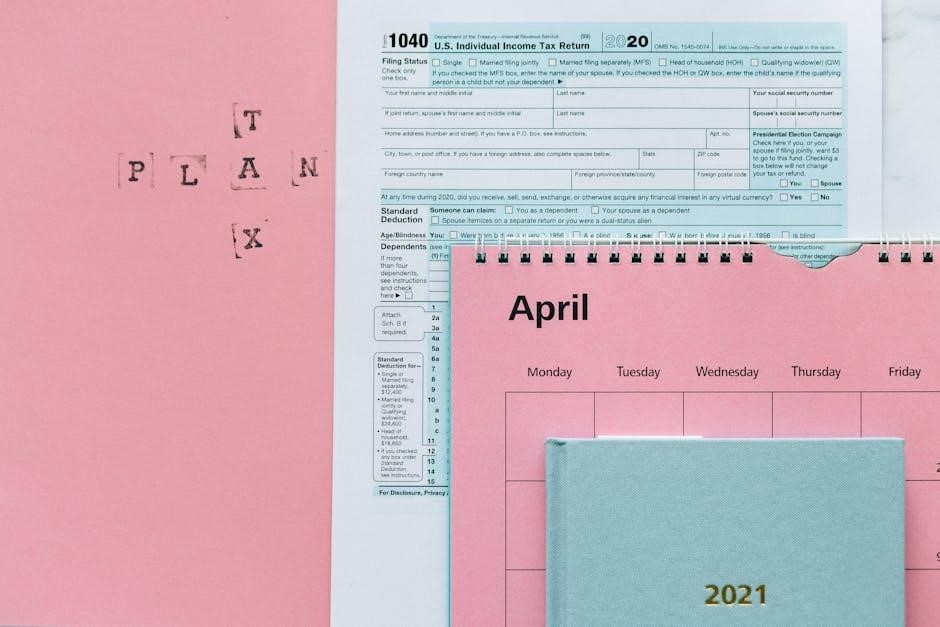
Gathering Necessary Documentation
Gathering necessary documentation involves collecting the decedent’s last federal income tax return‚ asset valuations‚ death certificates‚ and legal documents. Schedules E-1 through E-7 must also be prepared‚ detailing specific assets and deductions. Proper organization ensures accurate reporting and compliance with tax requirements. These documents are essential for completing the NJ Estate Tax Return effectively and avoiding delays. They provide a comprehensive overview of the estate’s financial status‚ supporting the tax filing process. Timely collection prevents missed deadlines and potential penalties.
4.1 Decedent’s Last Federal Income Tax Return
The decedent’s last federal income tax return is essential for completing the NJ Estate Tax Return. It provides critical details about the decedent’s income‚ deductions‚ and assets prior to death. This return helps identify items that may impact the estate’s tax liability‚ such as income earned but not yet received. The information from this return is used to complete specific sections of Form NJ-706‚ ensuring accuracy in reporting. Proper inclusion of this document is vital for avoiding delays or discrepancies in the estate tax filing process. It serves as a foundational reference for the estate’s financial snapshot.
4.2 Asset Valuation and Appraisal Documents
Asset valuation and appraisal documents are crucial for accurately determining the taxable value of the estate. These documents provide evidence of the fair market value of assets like real estate‚ securities‚ and personal property. Appraisals must be conducted by qualified professionals to ensure credibility. The information from these documents is used to complete sections of Form NJ-706‚ particularly for non-cash assets. Accurate valuations are essential to avoid underreporting or overreporting estate value‚ which could lead to tax discrepancies. Proper documentation supports the estate’s tax filing and helps prevent potential audit issues.
4.3 Death Certificates and Legal Documents
Death certificates and legal documents are essential for verifying the decedent’s details and establishing authority to file the estate tax return. A certified death certificate is required to process the return. Additionally‚ legal documents such as wills‚ probate records‚ and Letters Testamentary must be provided to confirm the executor’s or administrator’s authority. Trust agreements and powers of attorney may also be needed if assets are held in trust. Organizing these documents ensures accurate filing and prevents delays in processing the NJ Estate Tax Return.
4.4 Schedules E-1 Through E-7
Schedules E-1 through E-7 are essential for detailing the decedent’s assets. Each schedule corresponds to specific asset types‚ such as real estate‚ securities‚ and personal property. Executors must complete these forms accurately‚ providing descriptions‚ locations‚ and values in Columns A and B. Ensuring all applicable schedules are included with Form NJ-706 is crucial for a smooth filing process and to prevent delays or penalties.
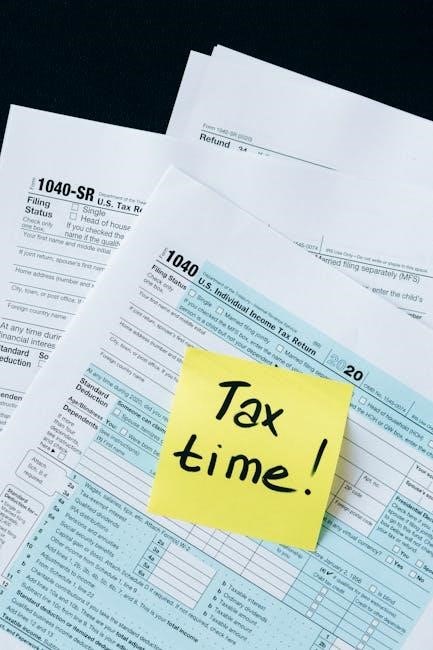
Calculating the NJ Estate Tax Liability
Calculate the taxable estate by summing assets and applying exemptions. Deductions reduce liability. Use Form 706 and state-specific deductions to determine the final tax owed accurately.
5.1 Determining the Taxable Estate
Determining the taxable estate involves summing the decedent’s assets‚ including real estate‚ securities‚ and personal property. Exclusions like certain trusts and exempt assets are then subtracted. The gross estate value is calculated by adding all taxable assets at their fair market value on the date of death. This total forms the basis for applying exemptions and deductions‚ ensuring an accurate assessment of the estate’s tax liability.
5.2 Applying Exemptions and Deductions
Exemptions and deductions reduce the taxable estate‚ lowering the overall tax liability. Charitable donations and certain bequests qualify for exemptions. Deductions include administrative expenses‚ debts owed by the estate‚ and the state death tax deduction. Proper documentation is essential to claim these reductions. Accurate application ensures compliance with tax laws and minimizes the estate’s tax burden‚ providing financial relief to beneficiaries. Consulting tax professionals helps maximize eligible deductions and exemptions‚ optimizing the estate’s tax position. This step is crucial for an accurate tax calculation and avoiding overpayment.
5.3 State Death Tax Deduction
The State Death Tax Deduction allows estates to reduce taxable assets by the amount paid in state death taxes. This deduction is claimed on Form NJ-706 and is based on the state’s specific tax laws. It is separate from federal deductions and applies only to New Jersey estate taxes. Proper documentation‚ such as receipts for tax payments‚ is required to claim this deduction. The deduction helps lower the overall tax liability‚ providing relief to the estate. It is essential to accurately calculate and document this deduction to ensure compliance with state tax regulations.
5.4 Worksheet for Tax Calculation
The worksheet for tax calculation is a crucial tool in determining the estate’s tax liability. It guides the preparer through organizing assets‚ deductions‚ and exemptions. By detailing each component‚ the worksheet ensures accurate computation of the taxable estate. Key sections include schedules for assets‚ liabilities‚ and deductions. Proper use of the worksheet aligns with Form NJ-706‚ facilitating compliance with New Jersey tax regulations. It simplifies complex calculations‚ ensuring precise and lawful tax assessment. Using the worksheet helps avoid errors and ensures all aspects of the estate are correctly accounted for in the final tax return.
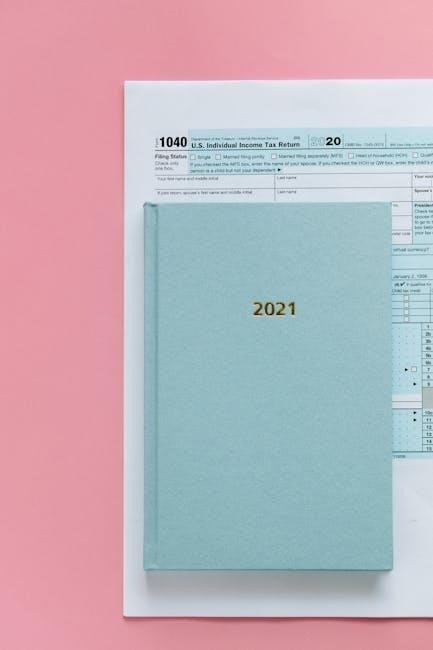
Filing the NJ Estate Tax Return
Filing the NJ Estate Tax Return involves submitting Form NJ-706 electronically or by mail‚ ensuring all required documents are included for accurate processing.
6.1 E-Filing Options
E-filing the NJ Estate Tax Return is a convenient and efficient method‚ offering accuracy and faster processing. The New Jersey Division of Taxation provides an online portal for submitting Form NJ-706 and supporting documents. Electronic filing ensures timely submission and reduces errors. Once filed‚ filers receive an electronic acknowledgment‚ confirming successful submission. E-filing is recommended for its speed and reliability‚ making it easier to meet deadlines and avoid penalties. Ensure all required documents are scanned and attached before initiating the e-filing process for a seamless experience.
6.2 Mailing the Paper Return
When mailing the NJ Estate Tax Return‚ ensure the paper return is sent to the correct address to avoid delays. Use certified mail with a return receipt for proof of delivery. Include all required schedules‚ supporting documents‚ and payments in the envelope. The address for mailing is specified by the NJ Division of Taxation‚ typically New Jersey Division of Taxation‚ Estate Tax Returns. Ensure the envelope is properly sealed and marked. Mail the return well before the deadline to account for processing time. Always retain a copy for records.
6.3 Filing Extensions and Penalties
Filing extensions for the NJ Estate Tax Return can be requested to extend the deadline‚ typically for up to six months. Use Form 558 or written request to apply. Penalties apply for late filing or payment‚ generally 5% of the unpaid tax monthly‚ up to 25%. Interest also accrues on unpaid amounts from the original due date. Ensure timely filing and payment to avoid these penalties. Extensions grant additional time for filing but do not extend the payment deadline. Always confirm extension approval before relying on it to avoid unintended penalties.
6.4 Submitting Supporting Documents
When submitting the NJ Estate Tax Return‚ include all required supporting documents to ensure accurate processing. Attach the decedent’s death certificate‚ asset appraisals‚ and completed Schedules E-1 through E-7. Ensure all documents are legible and properly signed. For e-filing‚ upload electronic copies securely. If filing by mail‚ include one copy of each document with the paper return. Always verify the completeness and accuracy of submissions to avoid delays or additional requests from the state. Proper documentation ensures the return is processed efficiently and accurately.
Payment of NJ Estate Taxes
Payment of NJ estate taxes is due within nine months of the decedent’s death. Use Form NJ-706 to remit payment via check‚ electronic funds transfer‚ or credit card. Late payments incur penalties and interest‚ so timely submission is essential.
7.1 Payment Methods
The NJ estate taxes can be paid via check‚ money order‚ or electronic funds transfer. Payments by credit card are also accepted. Checks should be made payable to New Jersey State Treasurer. When submitting payment‚ include the decedent’s name and Social Security number. Electronic payments can be made through the NJ Division of Taxation’s online portal. For accurate processing‚ ensure all payments are accompanied by the appropriate payment voucher from Form NJ-706. Detailed instructions are available on the NJ Division of Taxation website.
7.2 Installment Payment Plans
New Jersey allows estates to pay taxes in installments if the total liability exceeds a certain threshold. Estates can apply for an installment agreement by submitting the required forms and documentation. The arrangement typically requires a down payment and monthly installments over a specified period. Interest may accrue on unpaid balances. Estates must demonstrate financial hardship or inability to pay in full. The NJ Division of Taxation reviews each case to determine eligibility and terms. Timely payments are essential to avoid defaulting on the agreement and incurring additional penalties.
7.3 Late Payment Penalties and Interest
Failing to pay NJ estate taxes on time results in penalties and interest. A late payment penalty of 5% to 25% of the unpaid tax may apply. Interest accrues daily on the unpaid balance‚ starting from the original due date. Estates that miss deadlines risk additional fees and complications. It is crucial to pay the tax liability promptly or apply for an installment agreement to avoid escalating penalties. Late payments can delay estate settlement and incur unnecessary costs. Timely payment ensures compliance and prevents further financial burdens on the estate and its beneficiaries.
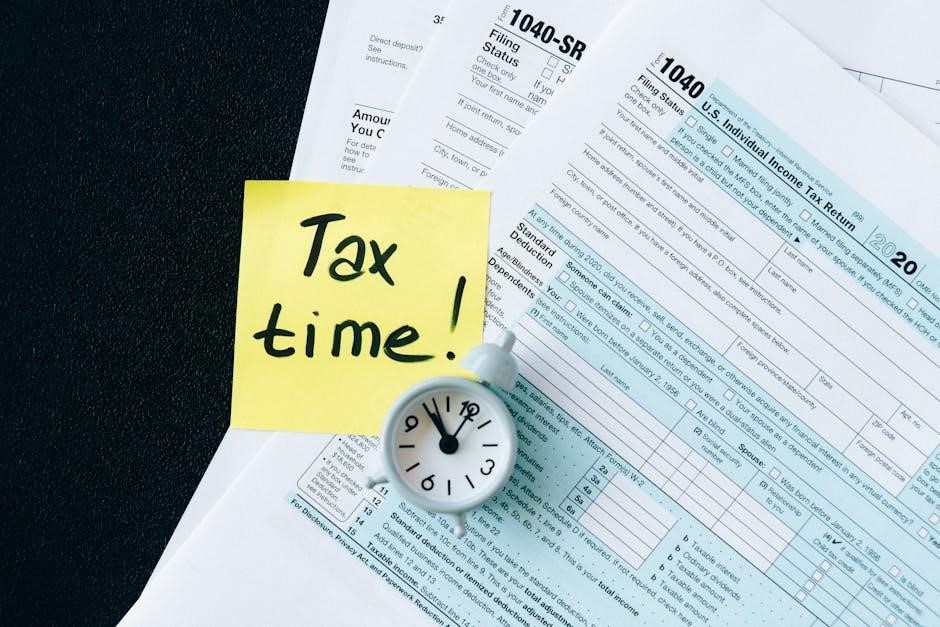
Special Considerations
Special considerations include distinguishing between inheritance and estate taxes‚ handling charitable donations‚ and addressing non-resident decedent cases. These factors require careful attention to ensure compliance and optimize tax benefits.
8.1 Inheritance Tax vs. Estate Tax
The inheritance tax and estate tax differ in who they affect. The inheritance tax is levied on beneficiaries receiving assets‚ varying by their relationship to the decedent. In contrast‚ the estate tax is imposed on the estate itself before distribution. New Jersey imposes both taxes‚ with the estate tax applying to the transfer of assets and the inheritance tax affecting beneficiaries based on familial ties. Understanding these distinctions is crucial for accurate tax compliance and planning‚ as they impact both the estate and its heirs. Proper documentation and professional guidance are essential to navigate these complexities effectively.
8.2 Handling Charitable Donations
Charitable donations made by an estate can provide tax benefits. Under the NJ Estate Tax Return‚ donations to qualified organizations may be deducted from the taxable estate. These deductions apply to both outright gifts and certain types of trusts. Proper documentation‚ such as appraisals for non-cash contributions‚ is essential. The estate can also benefit from federal tax deductions‚ which may reduce the overall tax liability. Accurate reporting of charitable donations ensures compliance with tax laws and maximizes potential savings for the estate and its beneficiaries. Professional guidance is recommended to navigate these rules effectively.
8.3 Non-Resident Decedents
For non-resident decedents‚ the NJ Estate Tax Return applies only to assets with a “NJ situs‚” such as real estate or tangible property located in New Jersey. Intangible assets like stocks or bonds are not subject to NJ estate tax for non-residents. The estate must file if the total taxable NJ situs assets exceed the exemption threshold. The filing process mirrors that of resident decedents‚ with the same deadlines and requirements. Proper documentation of asset location is crucial to ensure accurate tax assessment and compliance with state regulations. Professional guidance is recommended to navigate these specific rules.
Common Mistakes to Avoid
Overlooking deadlines‚ incorrect asset valuation‚ and missing deductions are common errors. Ensure accurate appraisals and claim all eligible exemptions to avoid penalties and ensure compliance with NJ regulations.
9.1 Missing Deadlines
Missing deadlines for filing the NJ Estate Tax Return can result in penalties and interest. The return must be filed within nine months of the decedent’s death. Late submissions may lead to additional fees and complications. Ensure timely filing to avoid unnecessary financial burdens. If unable to meet the deadline‚ consider requesting an extension to comply with state regulations and maintain estate planning efficiency. Proper planning and professional guidance can help prevent such oversight.
9.2 Incorrect Asset Valuation
Incorrect asset valuation is a critical error that can lead to audits and penalties. Accurate appraisals of all estate assets‚ including real estate and personal property‚ are essential. Overvaluing or undervaluing assets can result in incorrect tax calculations. Consult professionals for precise valuations to ensure compliance with tax regulations. Mistakes in valuation can delay processing and lead to additional liabilities. Proper documentation and expert appraisals are vital to avoid this common pitfall and ensure the estate tax return is filed correctly and efficiently.
9.3 Overlooking Deductions
Overlooking deductions is a common mistake that can increase tax liability. Deductions such as charitable donations‚ funeral expenses‚ and mortgage interest can significantly reduce the taxable estate. Failing to account for these can lead to overpayment of taxes. Ensure all eligible deductions are properly documented and claimed. Consulting a tax professional can help identify often-overlooked deductions‚ ensuring compliance and optimizing tax savings. Accurate documentation and thorough review are essential to avoid this error and ensure the estate tax return is filed correctly. This step is crucial for minimizing financial burdens on beneficiaries.
Audit and Appeal Process
The audit and appeal process involves reviewing the estate tax return for accuracy. Tax professionals can assist in navigating audits and appeals‚ ensuring compliance with state regulations. Submitting required documentation to the NJ Division of Taxation is essential for resolving disputes efficiently.
10.1 Understanding the Audit Process
The audit process involves a detailed review of the estate tax return by the NJ Division of Taxation. This ensures accuracy and compliance with tax laws. Taxpayers may receive notices requesting additional documentation or clarification. The audit may focus on asset valuations‚ deductions‚ or exemptions claimed. If discrepancies are found‚ adjustments may be made to the tax liability. It is crucial to respond promptly to audit notices and provide all requested information to avoid further complications. Professional guidance can help navigate the process effectively.
10.2 Appealing a Tax Decision
If the estate disagrees with a tax decision‚ an appeal can be filed with the New Jersey Tax Court. A formal protest must be submitted within the specified timeframe‚ detailing the grounds for the appeal. Supporting documentation‚ such as appraisals or legal arguments‚ should be included to strengthen the case. The court will review the matter‚ and a hearing may be scheduled. Professional representation is recommended to navigate the legal complexities and ensure the estate’s interests are protected throughout the appeal process.

Where to Seek Help
For assistance with NJ Estate Tax Returns‚ consult the NJ Division of Taxation resources or seek guidance from tax professionals. Online tools and guides are also available.
11.1 NJ Division of Taxation Resources
The NJ Division of Taxation offers comprehensive resources‚ including forms‚ instructions‚ and guides‚ to aid in filing estate tax returns. Their official website provides detailed information on tax calculations‚ deadlines‚ and required documentation. Additionally‚ they publish workshops and FAQs to address common questions. Taxpayers can access these tools online or visit local offices for personalized assistance. Utilizing these resources ensures accuracy and compliance with state tax regulations‚ simplifying the filing process for executors and fiduciaries; Staying informed through official channels helps navigate complex tax scenarios effectively.
11.2 Consulting a Tax Professional
Consulting a tax professional is highly recommended for navigating the complexities of the NJ Estate Tax Return. Experts can provide personalized guidance‚ ensuring compliance with state regulations and optimizing tax outcomes. They handle intricate calculations‚ identify applicable deductions‚ and manage documentation efficiently. Tax professionals also assist with extensions‚ penalties‚ and audit preparations‚ reducing the risk of errors. Their expertise simplifies the process‚ allowing executors to focus on other important matters. Leveraging their knowledge ensures accurate filing and minimizes potential liabilities‚ making the estate settlement process smoother and less stressful.
11.3 Online Tools and Guides
Utilizing online tools and guides can significantly simplify the process of filing the NJ Estate Tax Return. The New Jersey Division of Taxation offers comprehensive resources‚ including downloadable forms and step-by-step instructions. Interactive calculators and worksheets help estimate tax liabilities and organize necessary documentation. Additionally‚ official state websites provide updated information on filing deadlines‚ required forms‚ and payment methods. These digital resources empower filers to navigate the tax process efficiently‚ ensuring accuracy and compliance with state regulations without the need for extensive professional assistance.
